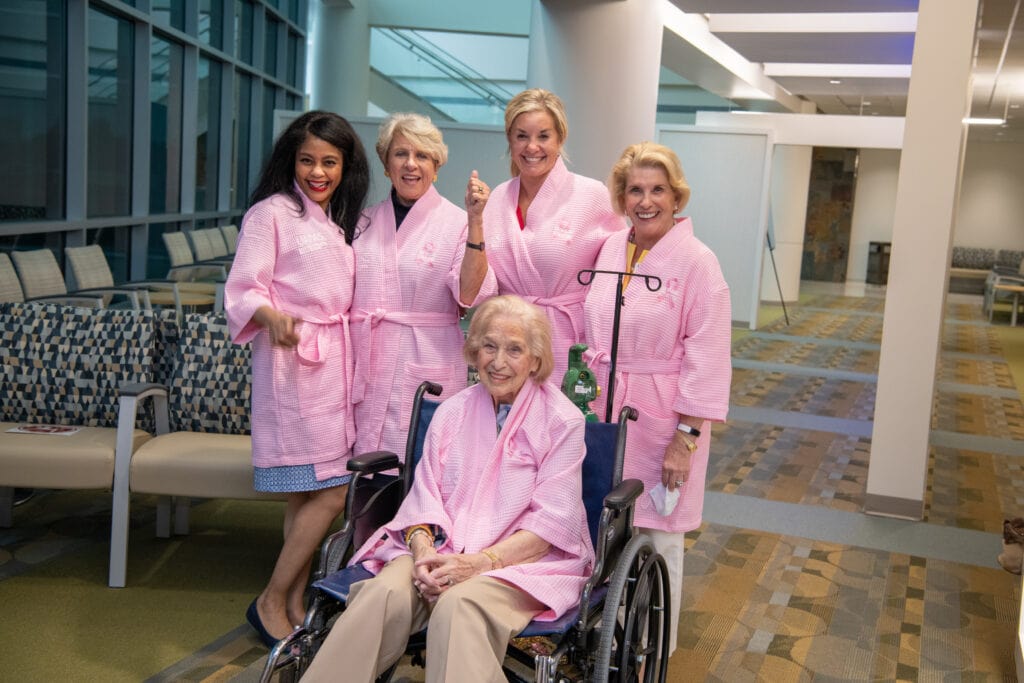
UAMS is ranked in the top 25% of participating clinics.
The Winthrop P. Rockefeller Cancer Institute is a top participant in the National Cancer Institute’s TMIST (Tomosynthesis Mammographic Imaging Screening Trial). The study, which continues through 2027, compares two standard breast cancer screening methods — tomosynthesis (3D) mammograms and digital (2D) mammograms — and is designed to help researchers determine whether one method is better than the other at finding life-threatening breast cancers.
Led by the Cancer Institute’s Breast Center Director Gwendolyn Bryant-Smith, M.D., UAMS is ranked in the top 25% of participating clinics. Currently, the study includes 62,855 participants. The UAMS Breast Center has enrolled 354 participants to date and plans to continue enrolling through 2027 or until the study’s goal of 130,000 is met. UAMS has participated in the study since September 2019.
The trial is open to women ages 45 to 74 who plan to get a routine screening mammogram at the UAMS Breast Center. Participants are randomly assigned to get either a 3D or 2D mammogram every one or two years for the first five years of the study. Researchers follow each woman’s breast cancer status for a total of eight years by reviewing medical records and possibly conducting phone interviews.
TMIST was developed by the Eastern Cooperative Oncology Group and the American College of Radiology Imaging Network (ECOG-ACRIN) Cancer Research Group and the National Cancer Institute, part of the National Institutes of Health. ECOG-ACRIN leads the trial.
To learn more about the study, Call the Cancer Institute’s TMIST line 501-400-3195 or email us at TMISTstudy@uams.edu.


